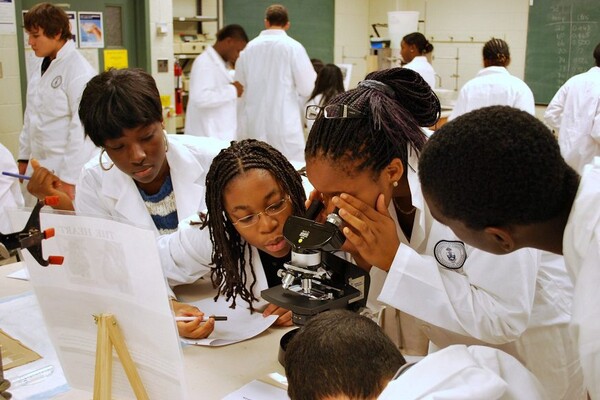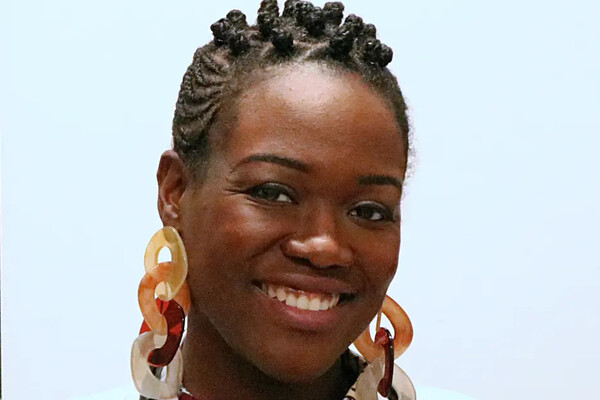Mobile Menu
- Education
- Research
-
Students
- High School Outreach
- Undergraduate & Beyond: Community of Support
- Current Students
- Faculty & Staff
- Alumni
- News & Events
- Giving
- About
 I didn’t have a black physician as a mentor when I was younger. I wish I had. I think the idea of being able to become a physician would have seemed more attainable to me – it would have become a more realistic goal.
I didn’t have a black physician as a mentor when I was younger. I wish I had. I think the idea of being able to become a physician would have seemed more attainable to me – it would have become a more realistic goal.
What I did have was a father who knew how to use his networks and the resources around him. When he realized I had an interest in medicine, he reached out to our own family doctor Dr. J. Lusis to ask if he’d spare some time to talk to me, and to encourage me.
It worked. And I’m so grateful.
I ended up achieving that unrealistic goal and got into medical school at U of T — in fact, the Faculty’s Chief Diversity Officer, Professor Lisa Robinson, and I were the only black students in our class of 1991. I went on to specialize in emergency medicine and am now the Director of Quality and Safety in the Emergency Department at Sunnybrook Health Sciences Centre.
But the fact that we were just two black students in a class of 252 really stuck with me. It wasn’t only an issue of equality, but of missed opportunity — because the benefits of diversity are huge. When you have a medical class that reflects the population you’re serving, the entire group develops a respect for different cultures and experiences. I could see how my classmates, who got to know me and considered me a friend, would notice when I might feel offended or marginalized. Before knowing me, they might not have even recognized subtle racism.
So after graduating, I set out to become a mentor myself. I wanted to give black youth exposure to the medical field — to make it more accessible to them in terms of career possibilities. I helped create the Black Physicians Association of Ontario, and with a group of people including then Associate Dean of Student Affairs Dr. Miriam Rossi and senior student-affairs officer Diana Alli, I helped launch the Summer Mentorship Program for Black and Aboriginal Students.
The idea is to level the playing field by giving these youth exposure they wouldn’t necessarily have through friends and family members. Close to 60 high-school students spend four weeks in the summer learning about health care professions and meeting people who work in the field. It’s been running for over 20 years, and has seen many graduates of the program go on to professional careers.
For me, mentorship has been extremely rewarding — and often in ways I’d least expect. For instance, I often talk to youth about how I went to school for my entire twenties, to invest in myself and in my career. Then in my thirties I was able to earn a good income and start a family. I always emphasize the importance of delayed gratification to students. Years later a young woman told my wife that she’d decided to pursue post-secondary education after she’d heard me speak, years earlier. She went into a career in teaching — not medicine. But to know that I had a part in helping her build a strong career was really touching. You never know who your words are going to resonate with.
It’s easy, once we become busy and successful professionals, to forget the days when we weren’t so sure what to do with our lives. We might not realize just how much younger generations could benefit enormously from our guidance, experience and advice.
But sometimes, our words can mean the world to them.
Dr. Dominick Shelton, MD’91 PGME’94, is a Faculty of Medicine graduate and an emergency physician at Sunnybrook Health Sciences Centre
Share the rewards: become a mentor, advisor or career panelist for students. And find out more about our work to create more inclusion and diversity at the Faculty of Medicine.

